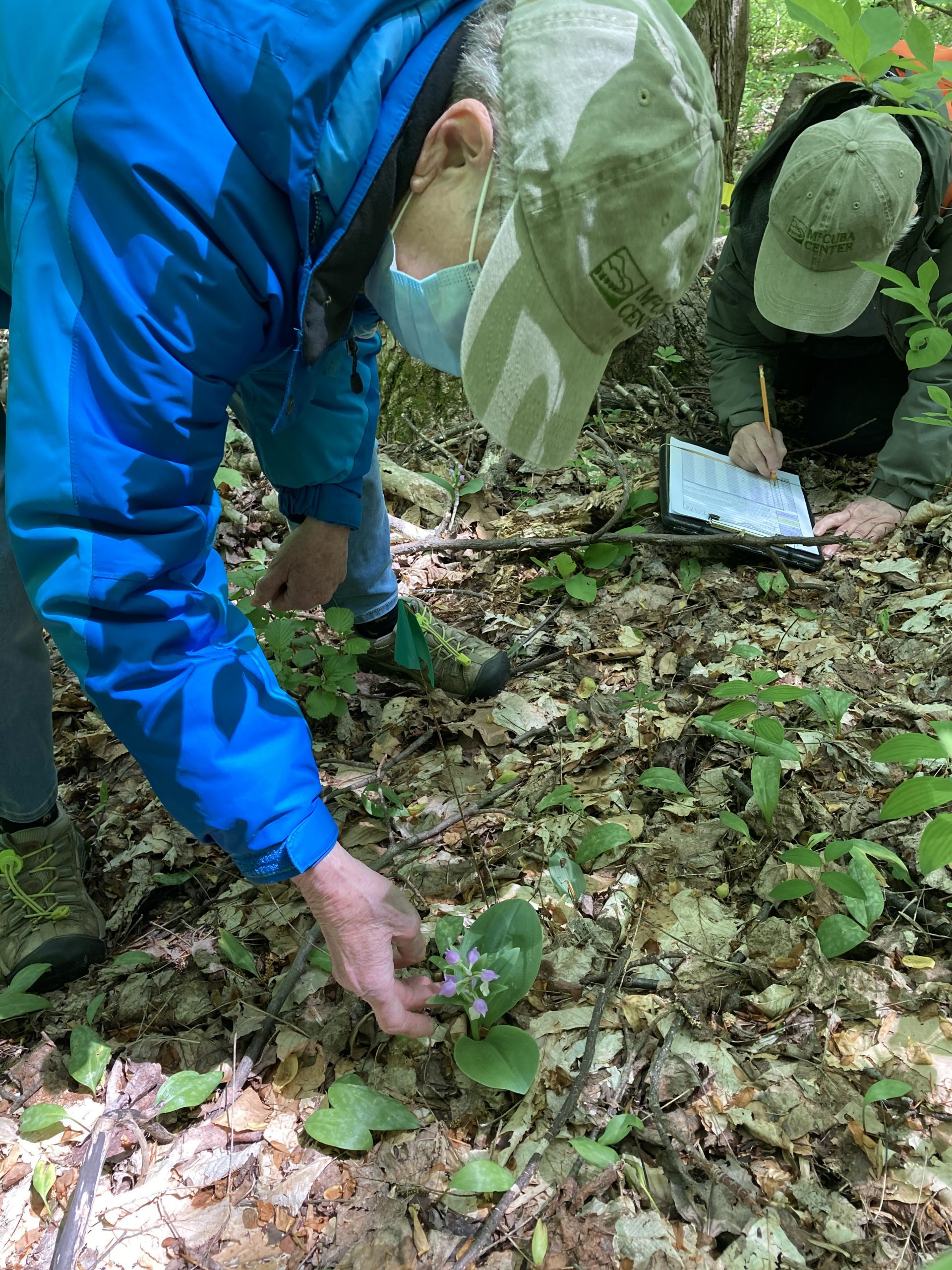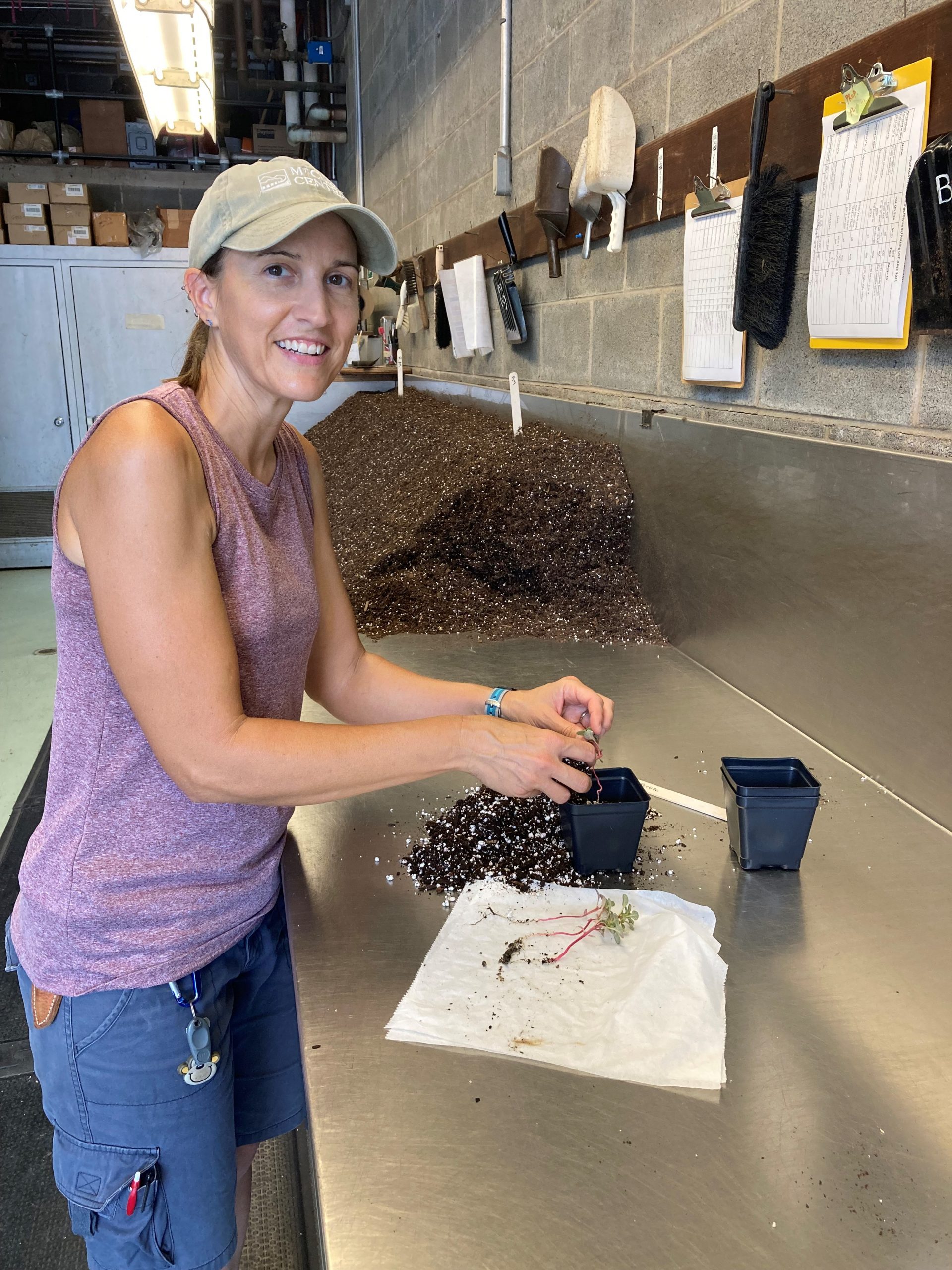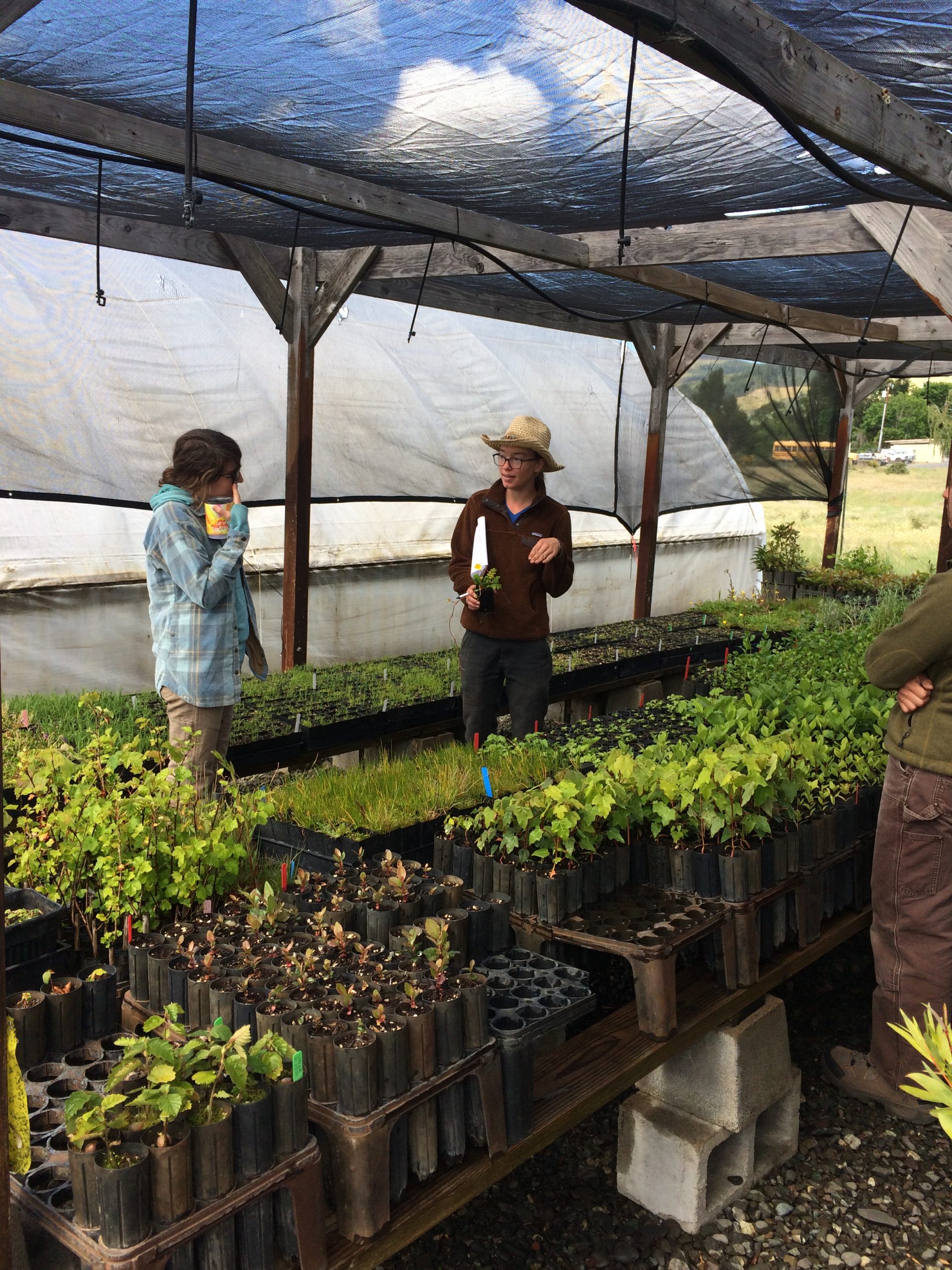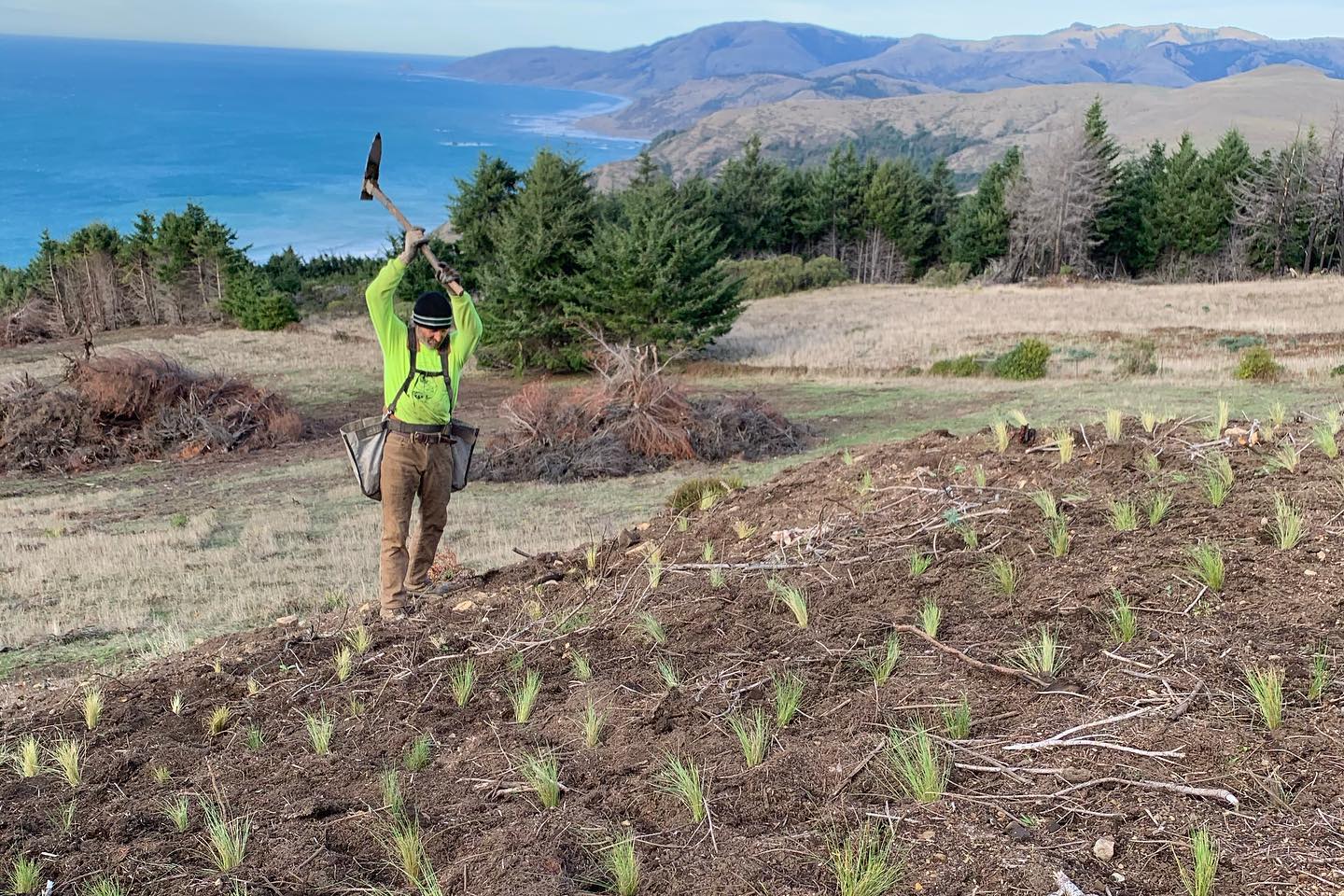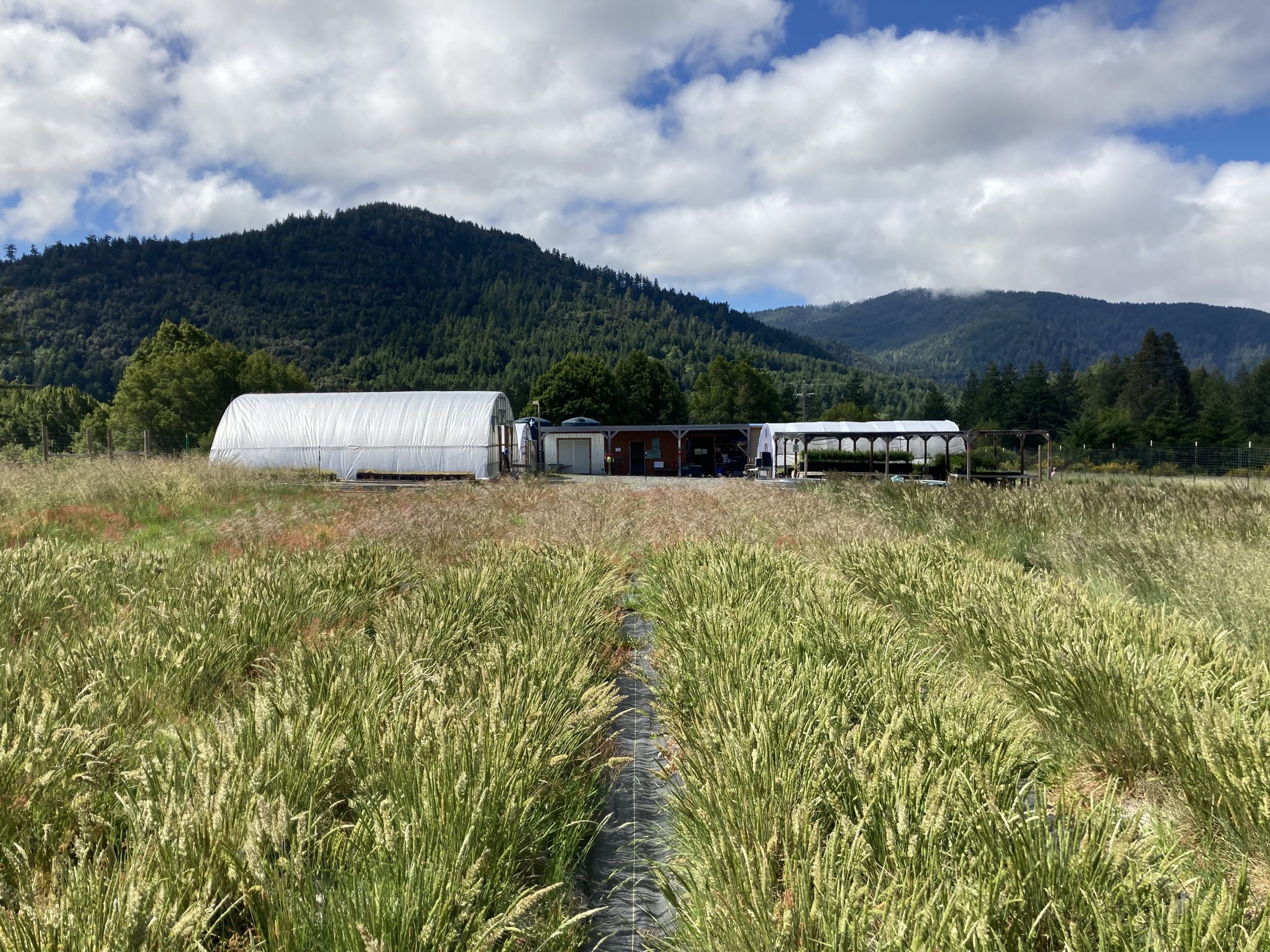Welcome to CPC: New Participating Institutions
The Center for Plant Conservation is pleased to welcome three new plant conservation organizations to our network of Particpating Institutions: Florida Native Plant Society, Mattole Restoration Council, and Mt. Cuba Center. Now 68 members strong, the CPC network brings together plant conservationists from across North America and is strengthened by the knowledge and experience that each institution brings. Together, our network makes it possible to Save Plants.
Florida Native Plant Society
The Florida Native Plant Society (FNPS), with 33 local chapters across the state, works for the statewide conservation, preservation, and restoration of the native plants and native plant communities in Florida. Collections of cuttings and seeds of native plants maintained by FNPS are used for population introductions in plant restoration projects on public lands. Through land acquisition and extensive partnerships, FNPS protects and preserves native species in their natural habitats and aids the Florida Department of Environmental Protection in land management reviews of the state’s conservation lands. One species benefiting from FNPS’s land ownership is the Floridian clasping warea (Warea amplexifolia), a rare and endangered plant thriving on land owned by FNPS and nearby partners (private landowners and local land conservancies).
To engage with local communities and encourage private conservation efforts as well as support scientific research, FNPS funds annual conservation and research grant awards and has hosted an annual conference for 40 years now featuring speakers, workshops, field trips, and more. Along with programs in conservation research and plant preservation, the FNPS also works to institute protective policy aiming to safeguard Florida’s native species for years to come. With great passion for the state’s native plant communities, FNPS envisions a future where Floridians and visitors alike know about and value Florida’s extraordinary native flora and native plant communities, which are essential to the healthy ecosystems that support wildlife and people.
-
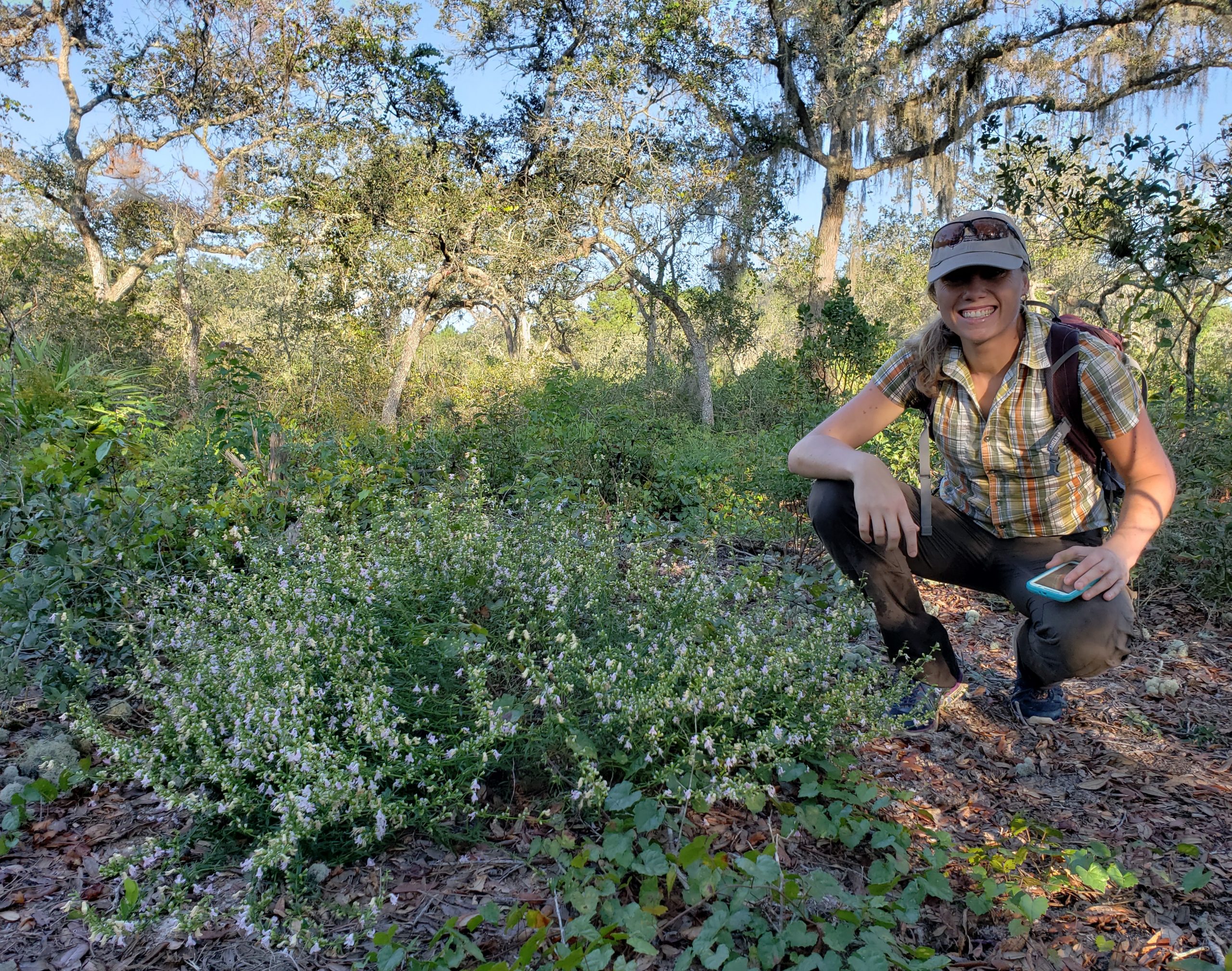
Valerie Anderson (FNPS's Director of Communications and Programming) with a large Dicerandra modesta plant found during a survey in Polk County, Florida. Photo by Juliet Rynear -
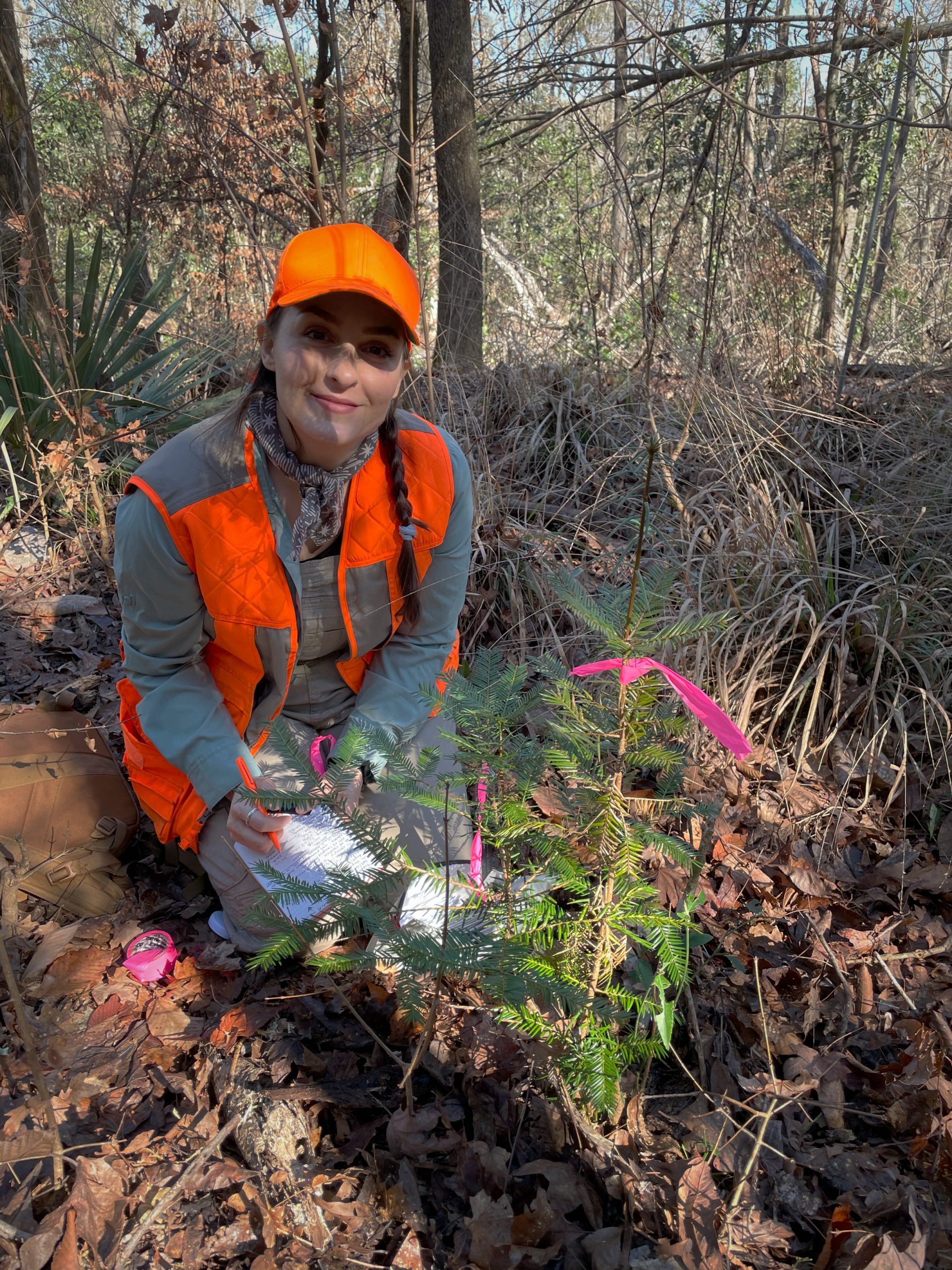
Lilly Anderson-Messec (FNPS's Director of North Florida Programs) with a Torreya taxifolia tree found during the survey of a privately-owned parcel in the Florida panhandle. Photo by: Ashlynn Smith -
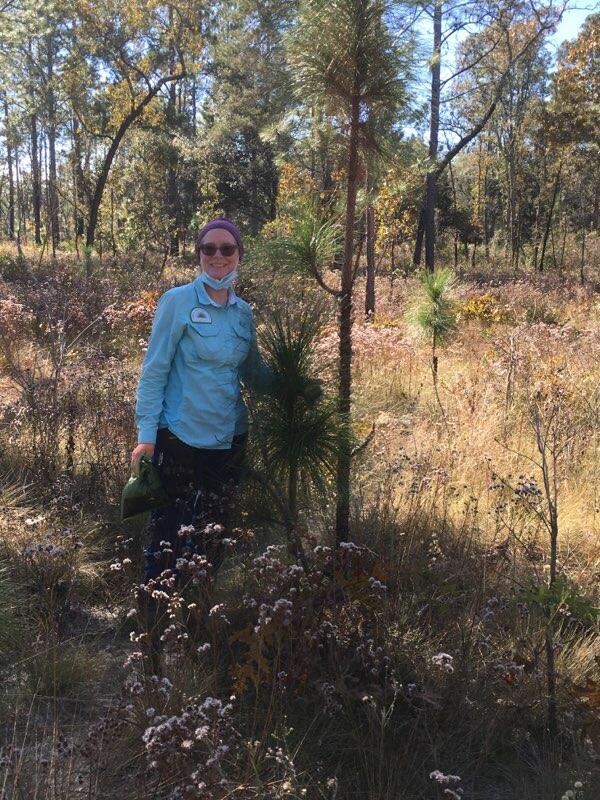
Juliet Rynear (Executive Director of FNPS) collecting sandhill seeds for a restoration project at the Cross Florida Greenway. Photo by Deborah Curry.
Mattole Restoration Council
Since its founding in 1983, the Mattole Restoration Council (MRC) has been devoted to the restoration and conservation of the Mattole Watershed with the goal to protect and maintain healthy natural systems and native species populations through its ecosystem restoration projects. MRC’s Native Plant Nursery collects native plant seeds and propagates native species for installation on restoration sites and for sale to the general public, with the capacity to propagate up to 200,000 plants. In addition to the storage and propagation of native plants, MRC also oversees the removal of invasive species and works with the Bureau of Land Management to collect native seed region-wide.
Working in and near the King Range National Conservation Area, MRC’s conservation efforts encompass a largely under-studied region of the California coast and provide a promising path to a future where the Mattole Watershed species thrive. Since beginning to gather seed in the 1980’s, MRC has developed an impressive collection of over 120 indigenous species from the Mattole Watershed and King Range area. In partnership with other local conservation and education groups, MRC represents a crucial component of the King Range Alliance, restoring the Mattole Watershed and surrounding ecosystems.
Mt. Cuba Center
Nestled within the Eastern Temperate Forest, Mt. Cuba Center presents a haven for native species of the mid-Atlantic across their 1,083-acre property. With roots dating back to a private estate and gardens in 1935, Mt. Cuba Center celebrates its heritage with historic gardens home to plants beloved by the original owners, the Copeland family. In 2002, the iconic gardens opened to the public, incorporating native plant gardens and protected land with the existing historic gardens. Mt. Cuba Center exists with great passion for their founding mission, to encourage visitors to explore the native plants of the region and become conservators themselves. This mission is achieved through gardens and trails open for public use and natural areas managed for educational, scientific, and conservation purposes, as well as programs integrating citizen science efforts.
Additionally, Mt. Cuba Center pursues conservation activities that resonate beyond its gates and its own organization by embracing opportunities to collaborate with professional peers. Mt. Cuba Center’s greenhouse is involved in rigorous studies to determine how to propagate difficult or underutilized plants so they can be re-established in the natural landscape. Several greenhouse projects are ongoing with agency collaborators, including plant production for habitat restoration. By providing fellowships and funding plant research, Mt. Cuba Center invests in the future of Delaware’s native species, ensuring their conservation and paving the way for these plants to flourish.
